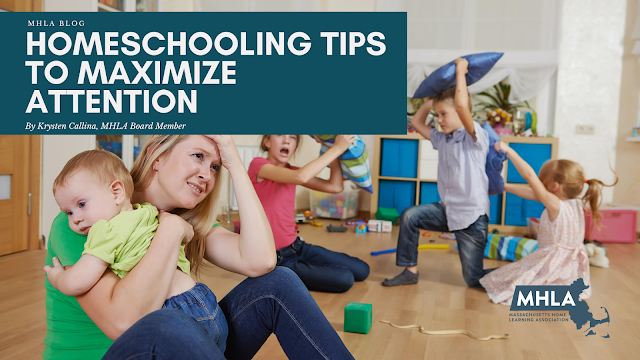Homeschool Tips to Maximize Attention
Homeschooling kids who struggle with executive function and self regulation (ADHD / Autism, etc.) can be a real challenge. The short attention span and difficulty organizing thoughts can make structured learning time sometimes feel like a real struggle.
According to the Center on the Developing Child at Harvard University-
“Executive function and self-regulation skills are the mental processes that enable us to plan, focus attention, remember instructions, and juggle multiple tasks successfully.” (READ MORE)Both my kids struggled with executive function and self-regulation. As a homeschooling parent, you can get really creative on how to approach curriculum with kids like this. Of course, there is no one-size-fits-all solution, but if you try different strategies, you’ll land on something that works for your family.
General Advice
- Avoid sugary or carbohydrate filled food / snacks before structured learning activities.
- Don't plan for them to sit very long (or maybe at all) unless it's a highly motivating activity. Let them stand instead of sit, take breaks as needed and use fidgets.
- If they "get it" in a short amount of time, don't make them complete something just for the sake of "practice" - Just move on or let them go
- Try to create a schedule so that they know when to expect the more “structured” activities - but be flexible. Start by picking a time when you know that your child is at their best. If it’s not working that day, do it later or swap it out for a more motivating educational activity.
- Get them moving before structured learning time, but give a “cool down” period in between. This is so they can get their “wiggles” out but are not over-stimulated when you need them to focus.
- Have “brain break” activities ready. These are simple activities that they can do during transition times, like mindfulness activities, stretching or pencil and paper breaks like doodle challenges, tik tak toe, or simple sudoku.
Use Games
Utilize gamified learning whenever possible.- EXAMPLE: Druidawn is an awesome writing approach to writing
- EXAMPLE: Math Apps / Games for practice - look at ThinkFun & Gamewright for some awesome tabletop
- EXAMPLE: Scribblenauts and Civilization (here’s a list of 10 great games)
Reading Support
- Let them read ALL THE GRAPHIC NOVELS! Don't worry about the medium, just get them whatever they are interested in and let them GO TO TOWN on them. There are a ton of Graphic Novelized classics, Science & STEM, History and much more
- Turn on SUBTITLES for videos / youtube and this will strengthen the mind connection with the words
- E-Books are awesome because they allow the reader to click on words they don't know for a definition. This is a great way to build vocabulary (and not technically screen time). Many libraries also have a large collection of e-books available through their Overdrive app, including graphic novels
- See if your library has a subscription to Tumblebooks. These are read-aloud and engaging
- Read aloud together. They are NEVER too old for this.
Use Videos
Short educational videos with discussion are often equal in learning efficiency to reading for the information. Great places for educational videos are:And...
Look into Unit Studies approach to cover more ground in less time framed within his interests, and use field trips or virtual field trips to enhance interactive learning.I hope you got some good tips here that will help your child enjoy learning at home this year.
Krysten Callina, MHLA Board Member
8/10/2020




Comments
Post a Comment